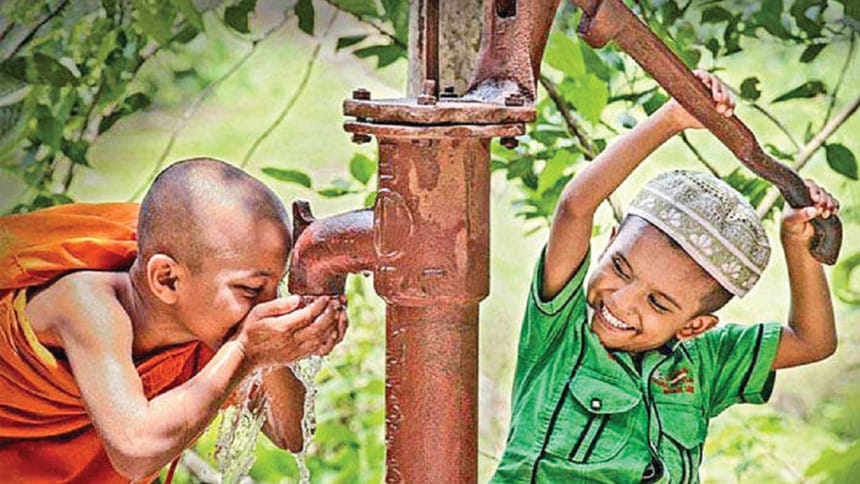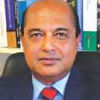Identity controversy amid communal violence in Bangladesh: A human rights perspective

Once again Bangladesh has recently witnessed communal violence in different districts during the Durga puja (worship of the Mother Goddess) of the people with Hindu religious faith, a fundamental religious right duly recognised and embodied in the Constitution of Bangladesh. The gravity of these violent acts on the minority Hindus has been censured not only by the national administration and civil society members but also internationally by the UN, the USA, Germany (Berlin), and neighbouring India. Rhetorical reactive responses echoed loudly in the aftermath of every communal violence, which continues almost unabated. This is high time to drift from rhetorical reaction to real action for the de-communalisation of poisonous religious hatred, ideological fanaticism, militant radicalism, and senseless criminality that once contributed to the commission of gruesome atrocities in the name of religion in 1971.
Responding to the above incidents in the Puja mandaps in Noakhali, Information Minister Dr Hasan Mahmud, raised an important, yet controversial, issue of our identity on 10 October 2021 at a meeting organised by Hindu Religious Welfare Trust in the Rangunia upazila of Chittagong (Prothom Alo, 10 October 2021). The Minister asserted that 'Bangali' is our first identity for which he rightly reasoned that all religious groups – Muslims, Hindus, Buddhists, and Christians alike - joined forces against religious abuses and excesses during Pakistan period and fought against Pakistani occupation troops and their local collaborators to physically liberate Bangladesh in 1971. Despite this glorious historic religious harmony displayed beyond doubt was one of the dominant forces that created non-communal Bangladesh, our identity controversy is yet to be dissipated, which overtly and covertly contributes to communal violence. It is this identity controversy that is the focus of this brief write-up, which purports to look at the issue from a human rights perspective.
Every individual and clusters of people can have their respective ethnic, racial, national, religious and/or other identities such as stateless, atheist and so forth. The people of Bangladesh are 'Bangali' by their ethnicity or race, 'Bangladeshi' by their nationality or citizenship, and Muslims, Hindus, Buddhists, and Christians by their religious faith. Now the debate surrounds the issue is whether these identities are amenable to any gradation or precedence in order. Regardless of our identity as 'Bangali', Bangladeshi, Muslim, Hindu, Buddhist, Christian, stateless, or atheist, we all are human being, our fundamental identity, which warrants human rights rationales to play a role in demystifying the controversy.
The identities referred to may be categorised into two distinct groups: natural and acquired. The natural identities are those that are not human made but given by the nature of creation and cannot be acquired, transferred, or lost. In other words, these identities are inalienable or unchangeable that transcends far beyond any state borders, and wherever we go – be it in another state, sea, forest, or desert; we take this identity with us irrespective of our wish. Since we all born with features of human being and distinctive racial attributes, our human being and ethnic identities belong to this category of primary identity. No matter what we do and where we go, we always remain as 'Bangali' by ethnicity because it is inborn, inbuilt, and inherent in us by virtue of our creation. Famous pop singer Michael Jackson could not change his primary identity even after undergoing skin surgery, which made his skin somewhat fairer, but remained an African American, not an Anglo-Saxon or first nation Red Indian. Similarly, there is no means that can transform us from 'Bangali' into a different racial group– be it Rohingya, Tamil, Anglo-Saxon, or any other. Ethnic/racial groups within a state are not created by that state, nor can it alter the ethnicity of a particular racial group by any means at its disposal. States merely recognise the physical existence of various ethnic groups and assume responsibility to protect them. Therefore, a human rights point of view tends to corroborate Dr Hasan Mahmud's view that our ethnic or racial identity as 'Bangali' is our primary identity.
The other category is the acquired identity, which is alienable and changeable and nationality/ citizenship and religion, among others, belong to this category. Constitutionally the nationals/citizens of Bangladesh are recognised as 'Bangladeshis', which is a human made and state conferred identity. National identity can be acquired and lost. A Bangladeshi national/citizen can change his/her national identity through migration and naturalisation in another state or by becoming a stateless person. This has been a regular feature of cross-border physical movement of natural person validated by international refugee law. Recently, following the Taliban takeover of Afghanistan, many Afghan nationals/citizens relinquished their Afghan national identity and have acquired or in the process of acquiring nationality of Western countries. The constitutional fundamental rights that we enjoy as nationals/citizens of Bangladesh are the creation of legislative enactments, which are susceptible to modifications by Parliament. As citizens, we can enjoy guarantees provided in the Constitution and these guarantees not only vary from state to state but some or all these guarantees can be suspended or withheld during national emergency. Similarly, the religious identity can be acquired and changed through voluntary religious conversion from one religion to another, which is happening routinely in all religions throughout the world. States can even intervene or influence their nationals/citizens' religious affinity through persuasive or coercive means, exemplified by the alleged plight of the Uighur Muslims across China. Most democratic countries' constitutions allow such conversion pursuant to their right to freedom of religion and the Constitution of Bangladesh is no exception permitting religious freedom (articles 12 and 28) and even free from any religious faith to become atheists.
The communal violence that has recently occurred causing wanton destruction of the puja mandaps, houses, properties, and lives of the Hindu minorities in Bangladesh are heinous criminal acts which cannot be condoned and justified under any consideration. Otherwise, any antipathy and denouncement of the Modi government's discriminatory treatment of minority Muslims particularly the Kashmiris in India, marginalised plight of the Arab Muslims and Palestinians in Israel, reported systematic religious persecution of the Uighur Muslims in China, and even violent ethnic cleansing of the Rohingyas in Myanmar would sound hollow and self-defeating. Such reprehensible treatment of minorities within states, albeit including horrific communal violence on all minorities in Bangladesh cannot be glorified and subsumed under any pretext whatsoever and under the principle of cultural relativism and cross-cultural perspectives of human rights. These despicable and contemptuous incidents solicit our attention and assault our sense of propriety at regular intervals to launch a worldwide consciousness-raising campaign for their total eradication to sanctify dignified human existence.
THE WRITER IS EMERITUS PROFESSOR OF LAW, MACQUARIE UNIVERSITY, SYDNEY, AUSTRALIA.

 For all latest news, follow The Daily Star's Google News channel.
For all latest news, follow The Daily Star's Google News channel. 



Comments